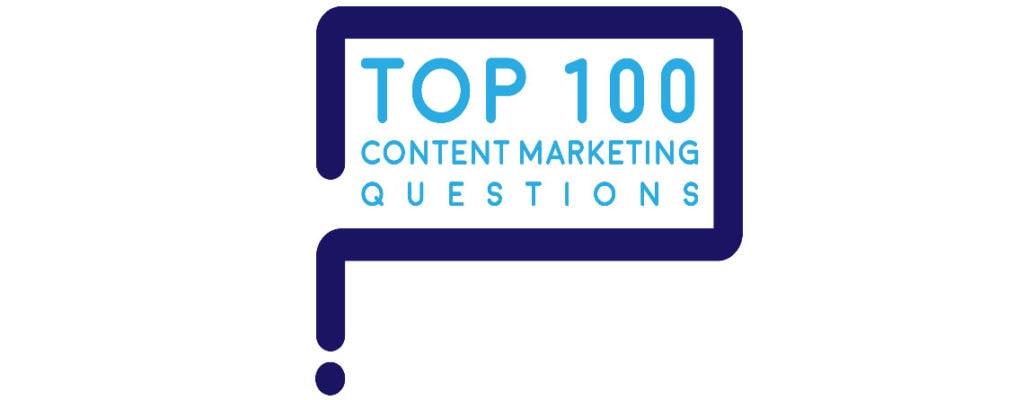AI in marketing: where to start? 2 ideas for you

Some marketers are worried about artificial intelligence (AI) in marketing. Others are downright scared.
That’s why only a few marketers are using AI productively today.
As Paul Roetzer, founder of the Marketing Artificial Intelligence Conference (MAICON), observes: “Most marketers don’t know what is AI or how to use it.”
As a writer and editor at heart, I feel the anxieties of marketing writers, who worry:
Will AI in marketing take jobs away?
When the Associated Press (AP) started using AI to generate sports stories and quarterly earnings coverage, I thought, “No way can a computer do the job of a writer.”
That was 5 years ago, in 2014. Turns out, I was completely wrong. In fact, AP generated 12,000 stories with AI by 2015.
Since AP added AI for natural language generation (NLG) to compose fill-in-the-blank stories, it can:
- Generate stories much faster. On news wires, every second counts.
- Cover almost 15 times more sports stories and earnings releases than before.
- Save money in terms of stories generated per person.
- Improve accuracy. A dirty little secret was, as a media relations director for a Fortune 50 company, I had to call human reporters to correct mistakes in earnings stories – the kinds of mistakes that AI doesn’t make.
In short, NLG makes writers more productive by squeezing out rote, fill-in-the-blanks work. What’s the upside for writers?
“The work of journalism is creative, it’s about curiosity, it’s about storytelling, it’s about digging and holding governments accountable, it’s critical thinking, it’s judgment — and that is where we want our journalists spending their energy,” Lisa Gibbs, the director of news partnerships for the AP, told the New York Times.
Today, Bloomberg generates 1/3 of its stories with NLG.
“Creating content by robot works best for formulaic stories like sports and financial news,” notes Cassandra Jowett of Path Factory.
So, will AI take our jobs away? No, AI will not replace human writers or marketers[.
Why? Because people are better than machines at crucial tasks.
“AI won’t eliminate jobs. It will eliminate tasks,” says Christopher S. Penn. “So, if your job is only one task, watch out. Become multi-disciplinary to be hard to replace.”
Marketing is as multi-disciplinary as any field: it’s a blend of art and science. It’s part psychology, part anthropology, part neuroscience, and largely about writing, designing, capturing and creating useful, persuasive content.
To do marketing well takes people who read others’ emotions, practice empathy, exercise judgment, and design good experiences. AI can’t do any of those jobs well.
What’s a good project to start using AI in marketing?
I see two immediate opportunities for marketing writers who want to use AI to produce better work. As you plan for 2020, consider launching an AI pilot project based on one of these ideas.
One idea: an AI pilot project using text analysis
To understand your buyers well, you need to listen to them closely. Walk a mile in their moccasins. Feel their pain points, emotions. Hear their worldview.
One way to do that is by interviewing buyers with buyer persona research. AI offers another way: listen closely to buyers with a form of AI called text analysis.
I used text analysis on my AI pilot project to explore this question: Which questions about content marketing are most important to marketers?
I spoke on this topic at Content Marketing World 2019. Here’s a snippet of my speech:
Do you know your customers’ 100 most important questions?
Do you answer customer questions crisply with content on your website, in emails, in the customer call center, and on sales calls?
If not, you have a great place to start an AI pilot project with text analysis. Text analysis enables you to recognize the patterns and mine the meaning out of vast oceans of text, such as:
- Customer questions
- Call center transcripts
- Chat on your website
- Customers’ emails
- Speeches at a conference.
For example, I’ve collected 2,100 questions about content marketing – more than even answerthepublic.com has collected. To recognize the patterns in a giant set of hundreds or thousands of questions takes the power of AI and text analysis.
What surprised me about my AI pilot project was that text analysis delivered much more than I asked for or expected:
- It identified the Top 100 Content Marketing Questions, as expected.
- It mapped out 6 steps in marketers’ content marketing journeys – a bonus I never expected.
- It revealed how B2B and B2C marketers face different obstacles in content marketing – a real insight that resonates with marketers.

To help you tackle your text analysis pilot project, here’s a blog on: How to perform a text analysis.
Here are the answers to marketers’ Top 100 Questions about marketing.
Another AI idea: natural language generation
Keith Moehring of agency PR 20/20 describes NLG as “Mad Libs meets Choose Your Own Adventure.”
PR 20/20 uses NLG to report its monthly results to clients. Instead of taking 5 hours per report, AI compiles reports in minutes. Clients receive reports two weeks sooner – on the 1st of the month, not the 15th.
That’s great for everyone. As a writer who produced many reports, and as a client who wants results in near-real-time, this automated reporting process sounds fantastic.
To succeed with NLG:
- Evaluate your opportunities.
- Build templates for your content.
- Start small and simple.
- Make spreadsheets with clear, unique labels for each type of data.
You can produce many types of text by using NLG today, such as:
- Curated content
- Earnings reports
- Emails
- Industry trend reports
- Machine translation
- News analysis
- News releases
- Product descriptions
- Real estate property descriptions
- Reports
- Social shares
- Weather forecasts
- Weekly recaps.
NLG frees you up to do writing work that’s much more important than routine reports. NLG providers include Automated Insights, which works with the AP, and Quill from Narrative Science.
There’s every reason to move forward, and no reason to hesitate, experimenting with AI. That’s because AI will help you become an even better marketer and writer, sooner. That will become a big competitive advantage for you and your company.





